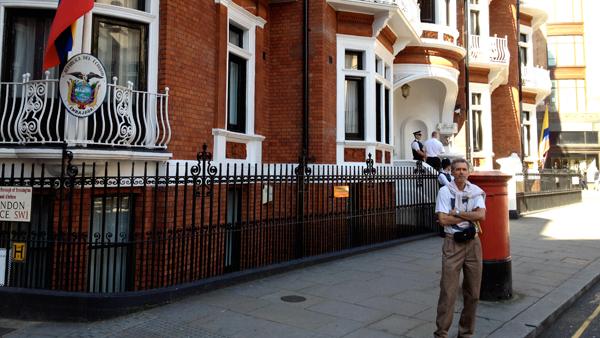Tunisia is a small, Mediterranean country in
North Africa. Back in 2007, Tunisian citizen-journalists and bloggers had
documented
the tourism/shopping sprees of the dictator's wife aboard the
presidential plane to Europe and global fashion capitals. (H/t Global
Voices)
In 2010, the
TuniLeaks
website was set up to post (WikiLeaks-released) internal U.S. Embassy documents candidly exposing the corruption of Tunisia's dictatorship.
Fascinating
photo
(released by Ben Ali's office) of dictator Ben Ali visiting the hospital bed of the desperate young
man who set himself on fire in Dec. 2010 -- the young man didn't live
long enough to learn that his act led to the overthrow of Ben Ali after sustained nonviolent protests.
Amid the protests, Tunisian rapper El General put out this
widely-circulated music video
attacking Ben Ali and urging folks to join the protests. El General was
arrested for it. Soon after, the dictator fled.
Dizzy Gillespie performs his classic jazz tune "
Night in Tunisia," first recorded in 1944.
